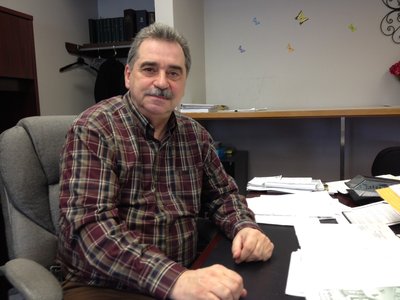A town official said last week that he expects the town’s annual budget, when introduced in April, to have a very small tax increase. Director of Finance Nick Goldsack said the increase will be within the 2 percent state cap, which is equivalent to a cost of living increase.
“It is always dangerous to stay the same or to reduce taxes,” Goldsack said. “If you reduce taxes you better have the dollars necessary the following year to cover that reduction. If you keep taxes flat…the following year you may run into uncertain situations. Then what happens is that you have to raise that [amount] in the next year.” That could cause layoffs, he noted, or other problems.
He said that if a town uses its surplus to cover costs in order to reduce or keep taxes flat then it has to consider how it will replenish the surplus in the following year. Towns sometimes end up with a surplus if they collect taxes at a higher rate than expected, or get more construction fees than anticipated. Secaucus has been successful the past year in collecting construction fees, he said.
Where the money goes
Secaucus taxpayers get tax bills that include amounts from three entities: The town budget, the school budget (voted on each April) and the county budget, which is usually approved by the Board of Freeholders each June. The tax rates are added together to tell homeowners what they have to pay, based on every $1,000 of assessed value of the property they own.
Last year, for an average home assessed at $173,000, total annual taxes came to $6,305.85, which included $1,669.45 for the county tax, $2,204.02 for the school tax, and $2,432.38 in municipal tax, Goldsack said.
Last year, the town budget was $46 million. Of that $46 million, 66 percent went to mandated costs such as employee benefits, uncollected taxes, debt service, and payroll taxes, which leaves little room to cuts costs.
“We only control 34 percent of our budget. And this administration does a great job of controlling that 34 percent,” said Goldsack.
Last year the amount to be raised from taxes was $36 million. The rest of the money to fund the budget comes from state aid, state and federal grants for programs, and fees (permit fees, licenses, court tickets, etc.)
The mayor and council are currently negotiating police contracts and will then negotiate the contracts for the Department of Public Works and municipal employees. Last year the DPW and municipal employees received a 3.8 percent increase in salary as per a rate negotiated in 2008, prior to the state mandated 2 percent cap on tax increases. The 2 percent cap will influence the rate of increase this year, according to Goldsack. Once the negotiations are finalized the town will then consider department requests, then move on to crunching the budget numbers before presenting next year’s budget.
“Taxpayers cannot afford large tax increases,” said Goldsack. “The people that really feel it the hardest are those on a fixed income. Their dollars are limited.”
But there are certain services the town wants to spend money on, he said.
“Service, service, service,” said Goldsack. “We want to provide the best service we can at quality dollars.” He said that the town intended to prioritize public safety, the Department of Public Works, and recreation.
The mayor and Town Council at the Feb. 14 council meeting proposed a number of capital spending projects that will be part of the budget for which they want to borrow $1.8 million in funds, including upgrades to multiple recreation facilities, the swimming pool, and the ice skating rink. Major projects will include resurfacing various roads ($310,000), updating the storm sewer system to mitigate flooding ($510,000), and improving parks ($260,000). The town also plans to upgrade the computer system across departments for $60,000 and will get new radios for the Police Department in the amount of $26,000.
“Taxpayers cannot afford large tax increases.” – Nick Goldsack
__________
Consistency in tax rate
A study by the Tax Foundation, based in Washington, DC, found that Hudson County ranked 14 among a list of counties with the highest property taxes in the United States. Two main factors contribute to property taxes, said foundation analyst Nick Kasprak in CNN Money: the amount of services local governments provide, and the revenue shared by state governments. “When a lot of the responsibility for running programs lies with local governments, residents pay for that with higher property taxes,” he said.
The state cut some state aid to Secaucus last year, Goldsack said. The state budget determines how much local aid towns will get. Last year the town received $1.2 million in aid.They will find out their aid amount this year within the next few weeks.
